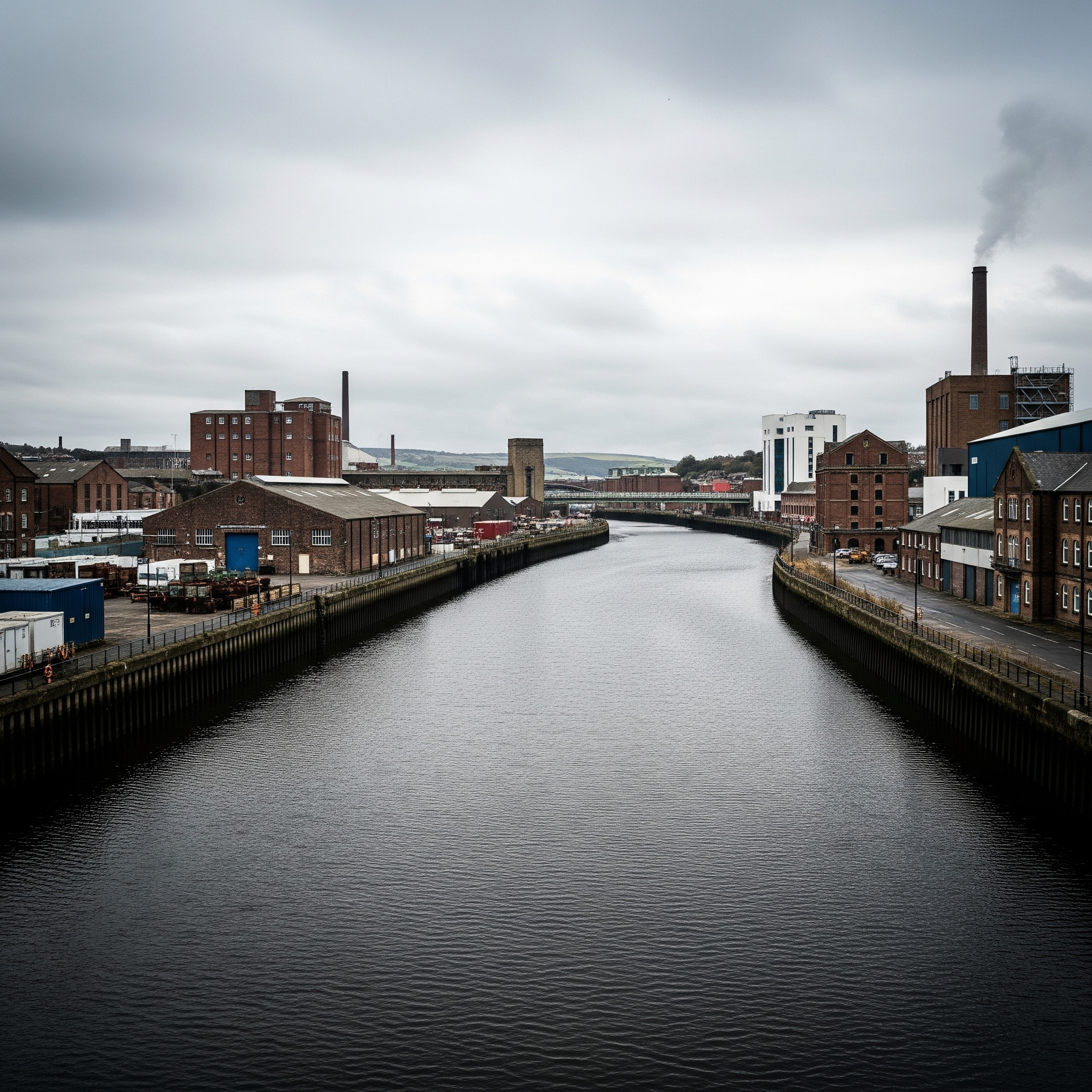"Forever Chemicals" Found in Nearly Every UK River Tested - What That Means for Your Health
A new study reveals a disturbing truth about PFAS contamination in UK waterways

A new study has revealed a disturbing truth: traces of a potentially toxic "forever chemical" were found in 31 out of 32 rivers tested across the UK.
The chemical, known as TFA (trifluoroacetic acid), is part of the PFAS family - a group of synthetic substances linked to long-term health risks. The only river in the study without detectable levels of TFA was the River Ness in Scotland.
What Are Forever Chemicals (PFAS)?
PFAS stands for Per- and Polyfluoroalkyl Substances - a group of thousands of man-made chemicals used since the 1940s in everything from non-stick cookware and waterproof clothing, to food packaging, cosmetics, and industrial processes.
They're called "forever chemicals" because they don't break down naturally in the environment or the human body. That means once they're out there - or in you - they stick around for a very long time.
What Is TFA and Why Is It Dangerous?
TFA (trifluoroacetic acid) is one of the simplest PFAS chemicals. It's not just manufactured directly - it also forms as a breakdown product when other PFAS degrade. That includes chemicals used in pesticides, refrigerants, pharmaceuticals, and fire-fighting foams.
In this latest study from the University of York, TFA was found in 98% of UK river samples - showing just how widespread and persistent it is.
Although official UK agencies have not yet classified TFA as harmful, German scientists are pushing for it to be listed as toxic for reproduction. Animal studies have shown impacts on fetal development in rabbits and rats.
Health Effects of PFAS Exposure
While different PFAS compounds have different risks, research has linked chronic PFAS exposure to:
- Hormonal disruption
- Reproductive issues and infertility
- Increased cholesterol levels
- Weakened immune response
- Developmental delays in children
- Higher risk of certain cancers (including kidney and testicular)
- Thyroid dysfunction
How Is This Getting into Our Water?
TFA contamination is largely due to industrial runoff, agricultural pesticides, and chemical waste. Because TFA forms as other PFAS break down, it's also present in treated water supplies - meaning it can show up in your tap even if it wasn't there to begin with.
The University of York's study found the highest levels in the River Kelvin in Glasgow. But rivers across Wales, Northern Ireland, and England also showed contamination.
What's Being Done About It?
Right now? Not enough. While Germany has begun pushing for stricter regulation and PFAS bans, the UK has not yet introduced any binding limits on TFA in water or food.
The Drinking Water Inspectorate (which oversees water quality in England and Wales) has just commissioned new research to assess how much TFA is in public water - and what health risks it may pose.
Meanwhile, Water UK - the body representing the UK's water companies - is calling for a ban on PFAS chemicals, and a national plan to clean up the contamination.
What Can You Do?
This news is part of a larger pattern: we're constantly exposed to invisible contaminants, whether it's in our water, food, or products we use every day.
At TraceWell, we help people understand the hidden substances in the things they use every day - from bottled water to protein powders to municipal tap water. Our AI-powered platform gives you up-to-date information on microplastics, PFAS, contaminants, and more - all in one place.
You can also use TraceWell to:
- Check the quality of your local water supply
- Learn which products are free from harmful chemicals
- Make better choices based on science, not marketing
Final Thoughts
Forever chemicals like TFA are a growing global health concern - but in many places, they're still flying under the radar.
The University of York study is a wake-up call: even rivers that look clean may be contaminated, and without proper regulation, these substances will continue to accumulate in our water, bodies, and environment.
But with knowledge comes power - and at TraceWell, we're building the tools to help you take control.
Sources
Take Control of Your Water Quality
Get personalized insights about your water quality and learn how to protect yourself from harmful contaminants.
Sign Up for Free